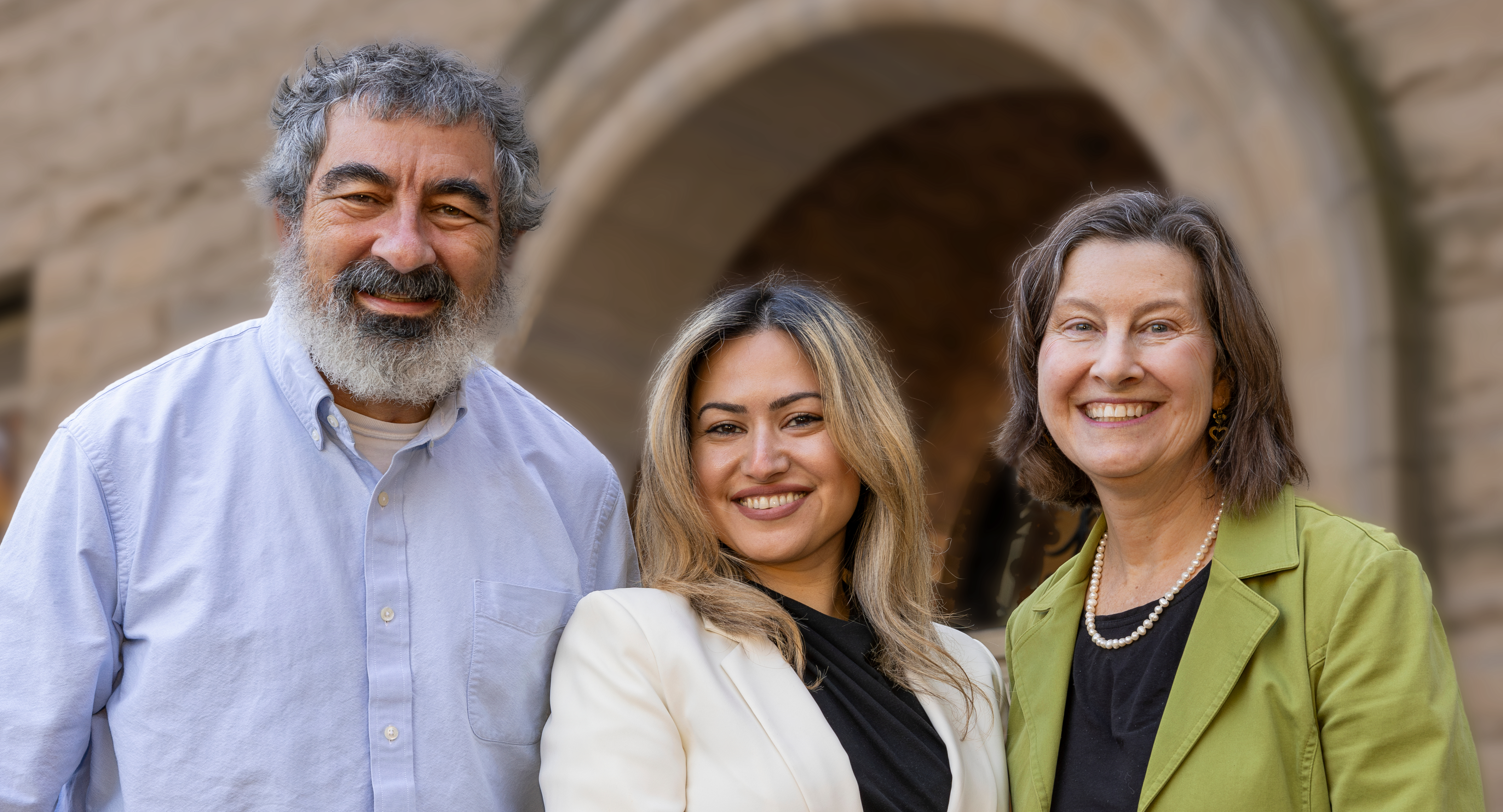Meet the University Ombuds
Cornell's completely confidential resource for staff, faculty, and students
by Grace DePaull
Whether adjusting to academics, accessing accommodations, settling a dispute with a colleague or understanding the university’s benefits, navigating the ins and outs of Cornell can be challenging for both students and employees. The Office of the University Ombuds is a free resource available to all faculty, staff and students, providing a safe place to address conflicts or other issues affecting work, life or study at Cornell.
Established in 1969, the office is currently staffed by three employees, one of whom is Bruce Lewenstein, a professor of science communication.
Lewenstein was appointed University Ombuds in January 2022. After serving as the Student Ombudsman at the University of Chicago during his final year of undergraduate studies, Lewenstein accepted the position at Cornell with the hopes of continuing to help others navigate their experiences in higher education and at the university.
“I had found it very rewarding,” Lewenstein said. “Taking on this role is a way of helping people. My career at Cornell has given me an overview of the university that many people don’t have. So, I felt like I had a set of skills and knowledge that might be useful in the position.”
Lewenstein has been working at the university for over thirty-five years and has developed a deep understanding of Cornell by teaching in both the public and private colleges of the university, serving as the Speaker of the University Faculty Senate and spending four years as a faculty-elected member of the university’s Board of Trustees. The Office of the Ombuds is supported by individuals who are deeply involved in the university and community and are trained in managing conflict.
“Fundamentally, we are problem solvers,” Lewenstein said. “We are a place to come when you’re facing any conflict, confusion or uncertainty and you’re not sure what other office is the right one to go to. We’re here to find ways to solve a problem or help identify alternatives.”
According to Lewenstein, their office receives between three hundred and four hundred visitors annually and helps individuals overcome challenges ranging from conflicts with supervisors, navigating the financial aspects of enrollment, bullying in the workplace, uncertainties with academic programs, disability accommodations and more. For those concerned about sharing their personal challenges, the Office of the Ombuds operates under four key principles—confidentiality being the first and most important.
“The second principle is that we are independent; we’re not part of any other unit on campus,” Lewenstein said. “We are also informal, which means we’re not part of any formal appeals or grievance process, and we’re not decision-makers."
"Our job is to help people identify alternatives or think about how to approach a problem and find a solution. That’s tied to the final principle, which is that we’re impartial. We don’t take sides. Our job is not to be advocates, except for fairness and dignity.”
The other members of the ombuds team are Linda Falkson, director of the Ombuds Office, who served as Cornell’s Associate Judicial Administrator and Deputy Judicial Administrator before joining the office in 2008, and Ati Alipour, who recently joined in 2023 and has served as a lawyer and mediator with a background in dispute resolution and experience in international organizations and academia. Those who reach out to Cornell’s ombuds can expect to meet one-on-one with either Lewenstein, Falkson or Alipour.
“When people meet with us, we like to explain the four principles to create a framework,” Lewenstein said. “After they describe their issue or concerns, we’ll ask about their desired outcomes and goals. Based on that, we’ll work together to find various solutions or ways of helping people reframe the problem.”
The ombuds can be as involved in the situation as the individual wants. They can serve as an outlet to talk to and provide guidance or suggestions. Or they can play a more active role in the resolution and go directly to an office or individual to help address the concern if confidentiality is waived.
For Lewenstein, the ombuds are one of the many resources on campus that contribute to the long-lasting success of the university and wellbeing of Cornellians.
“We want to help Cornell run as smoothly as possible and continue to help the community grow,” Lewenstein said. “Sometimes success is a resolution to a specific problem, and other times, we’ve helped empower someone to build their own success. Either way, we’re investing for perpetuity. We expect this institution to always be here, so with everything we do, we’re investing for the future. It’s a matter of identifying what we must do now, like helping people and working through issues that will move us along so that we’re still here 150 years from now.”

